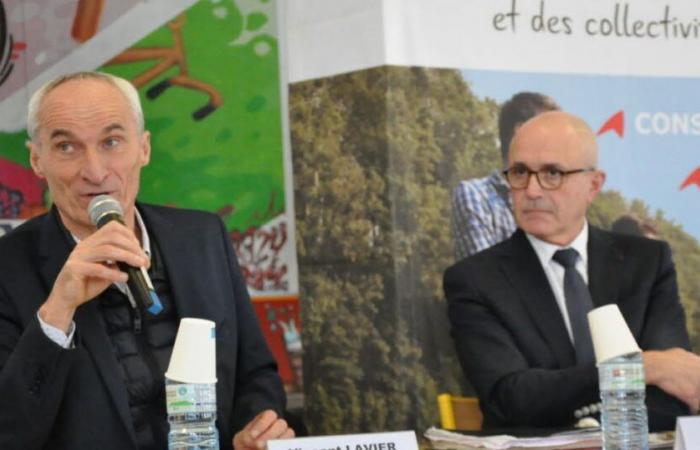It was at the Félix-Kir agricultural high school, in Plombières-lès-Dijon, and in the presence of prefect Paul Mourier, that the leaders of the Côte-d'Or chamber of agriculture met on Friday, November 22, for the final session of the 2019-2025 term. A mandate which will end in January. Just like the presidency of Vincent Lavier, in office since 2013.
It was therefore time to take stock. Particularly with regard to adaptation to climate change. “These six years have confirmed that this change is indeed a reality. Four years out of six, in 2019, 2020, 2022 and 2023, we observed scorching temperatures and a proven lack of precipitation,” recalled Christophe Lechenault, head of the livestock division. “Our traditional farms are in great difficulty. The food autonomy of herds is fragile. For example, there were 5,500 hectares of artificial meadows in 2015, compared to 19,300 in 2023.
Cattle herd in sharp decline
As a result, production is in constant decline. “In 2013, we had 1,162 suckler cow farms. In 2023, there were only 949. There were 208 dairy farms, there are now only 147. In 2015, there were 74,000 suckler cows and 15,000 dairy cows, compared to 66,700 and 12,800 respectively. in 2023. And there are only two slaughterhouses left in the department,” worries Christophe Lechenault.
Conversely, the downpours that fell this year affected cereal growers' harvests. While frost has regularly hampered the work of winegrowers. They now benefit from a network of around a hundred weather sensors, in order to better anticipate intense and exceptional phenomena.
A restored image among the public
One of the other major projects was the renewal of generations. “Our goal was to provide all the necessary tools to those who wish to settle down. We have trained 360 young people over the last six years, or 80% of project leaders,” said Aurélien Vieillard, head of the training, installation and transmission division.
Vincent Lavier, who wanted to emphasize communication when he took office, was nevertheless delighted on this point. “The implementation of the Agricultural Trophies since 2017, in partnership with The public good made it possible to talk about agriculture in a positive way. This event has found its place in our ecosystem. Just like the “100% Côte-d’Or” brand, supported by the departmental council, which appeals to consumers and highlights the quality of our production. »






